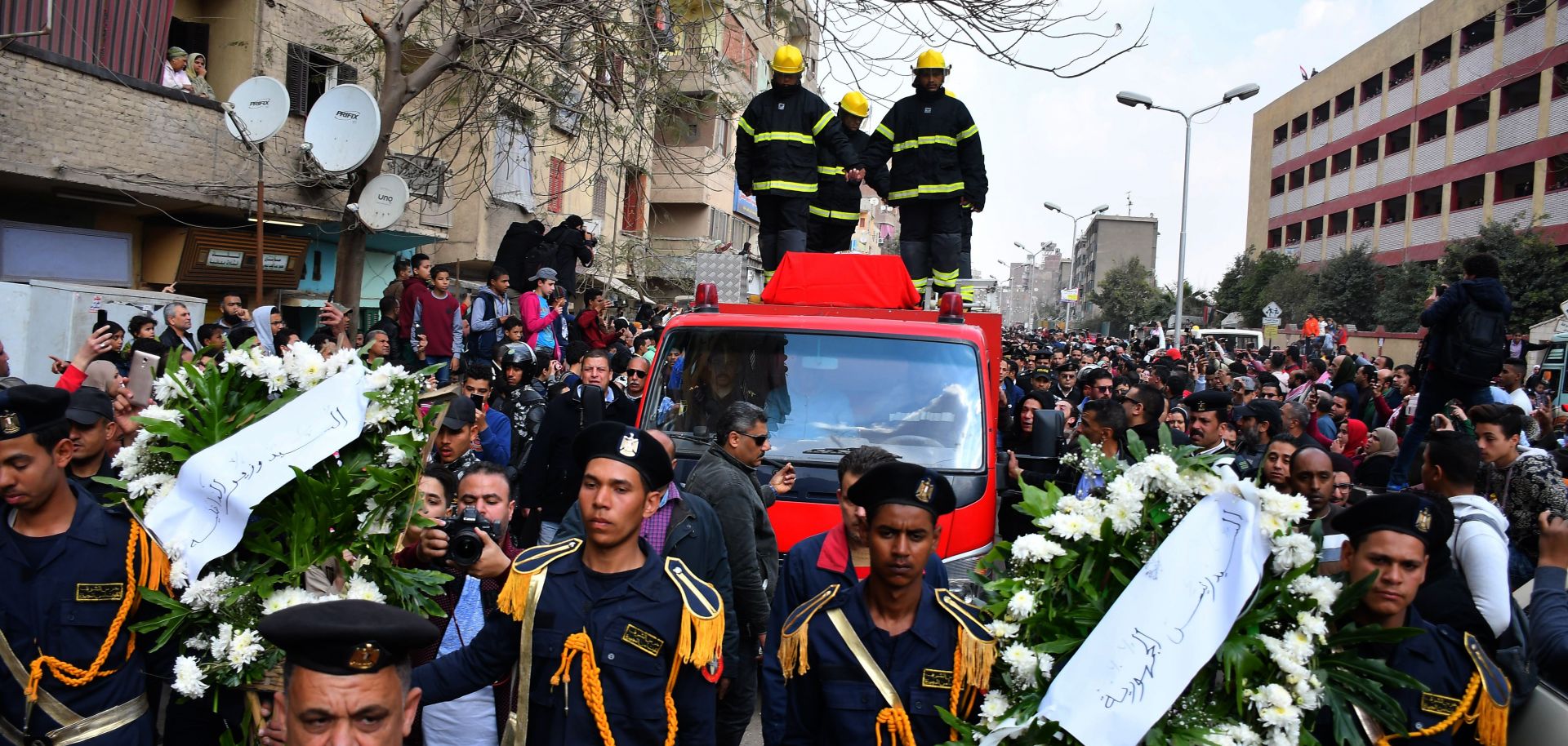COLUMNS
Why Egypt's Terrorists May Choose to Go It Alone

Feb 26, 2019 | 09:30 GMT

Policemen carry wreaths in Cairo on Feb. 19, 2019, at the funeral of Mahmud Abu el-Yzied, one of three policemen killed in a bombing the previous day. Recent bombings suggest Egypt now faces a many-headed grassroots threat.
(AHMED HASAN/AFP/Getty Images)
Highlights
- No one has claimed responsibility for a recent series of attacks in the Cairo area despite the existence of multiple groups eager to strike at the Egyptian state.
- The recent attacks indicate the emergence of a grassroots terrorist threat in Egypt.
- Egypt's major jihadist groups have been under pressure from government forces over the past year, undermining their ability to organize and conduct attacks.
Subscribe Now
SubscribeAlready have an account?
